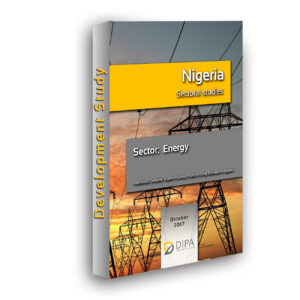 Nigeria is located at the extreme inner corner of the Gulf of Guinea on the west coast of Africa and has a tropical climate with variable rainy and dry seasons, depending on location.
Nigeria is located at the extreme inner corner of the Gulf of Guinea on the west coast of Africa and has a tropical climate with variable rainy and dry seasons, depending on location.
Nigeria, commonly known as the giant of Africa with more than 180 million people is the most populous country in Africa. With a democratic presidential system of government, it has an economy which is based on its rich natural resources, traditional agriculture and the trade sector. The country has a rich land of diverse cultural heritage, with more than 250 ethnic groups, including a wide array of religions and sophisticated visual arts.
It not only shows high potential in human resources but also is endowed with rich natural resources such as oil, gas and minerals. The country aims to develop other productive sectors, boosted by the size of its population and economy, it is a regional powerhouse.
Nigeria is the largest oil producer in Africa, holds the largest natural gas reserves on the continent, and was the world’s fourth-largest exporter of liquefied natural gas (LNG) in 2015. Nigeria became a member of the Organization of the Petroleum Exporting Countries (OPEC) in 1971, more than a decade after oil production began in the oil-rich Bayelsa State in the 1950s. Although Nigeria is the leading oil producer in Africa, production is affected by sporadic supply disruptions, which have resulted in unplanned outages of up to 500,000 barrels per day (b/d).
Last but not least, the Business Environment in Nigeria can be characterized as unsupportive, with the World Bank ranking it (ease of doing business) 170 out of the 189 countries surveyed in its 2016 “Doing Business” report.
1. Country Profile
1.1 History of Nigeria
1.1.1. Early History
1.1.2. The Colonial period
1.1.3. Independence and Internal Conflict
1.1.4. Modern Nigeria
1.2. Geography
1.2.1. Area and Boundaries
1.2.2. Topography
1.2.3. Resources and Land Use
1.2.4. Environmental Concerns
1.3. People and Society
1.3.1. Population and National Identity
1.3.2. Demographics
1.3.3. Societal Characteristics
1.4. Government
1.4.1. Framework of Government
1.4.2. Legislative and Judicial Branch
1.4.3. Political Parties and Leaders
1.4.4. Foreign Relations
1.4.5. Political Pressure Groups
1.5. Main Infrastructure
1.5.1. Tele Communications
1.5.2. Transportation
1.5.3. Energy
2. Energy
2.1. Electricity
2.2. Regulation of the oil and natural gas industries
2.3. Petroleum and other liquids
2.4. Natural Gas
2.5. Largest Oil and Gas companies
3. Doing Business
3.1. Starting a Business
3.2. Dealing with Construction Permits
3.3. Getting Electricity
3.4. Registering Property
3.5. Getting Credit
3.6. Protecting Minority Investors
3.7. Paying Taxes
3.8. Trading across Borders
3.9. Enforcing Contracts
3.10. Resolving Insolvency
